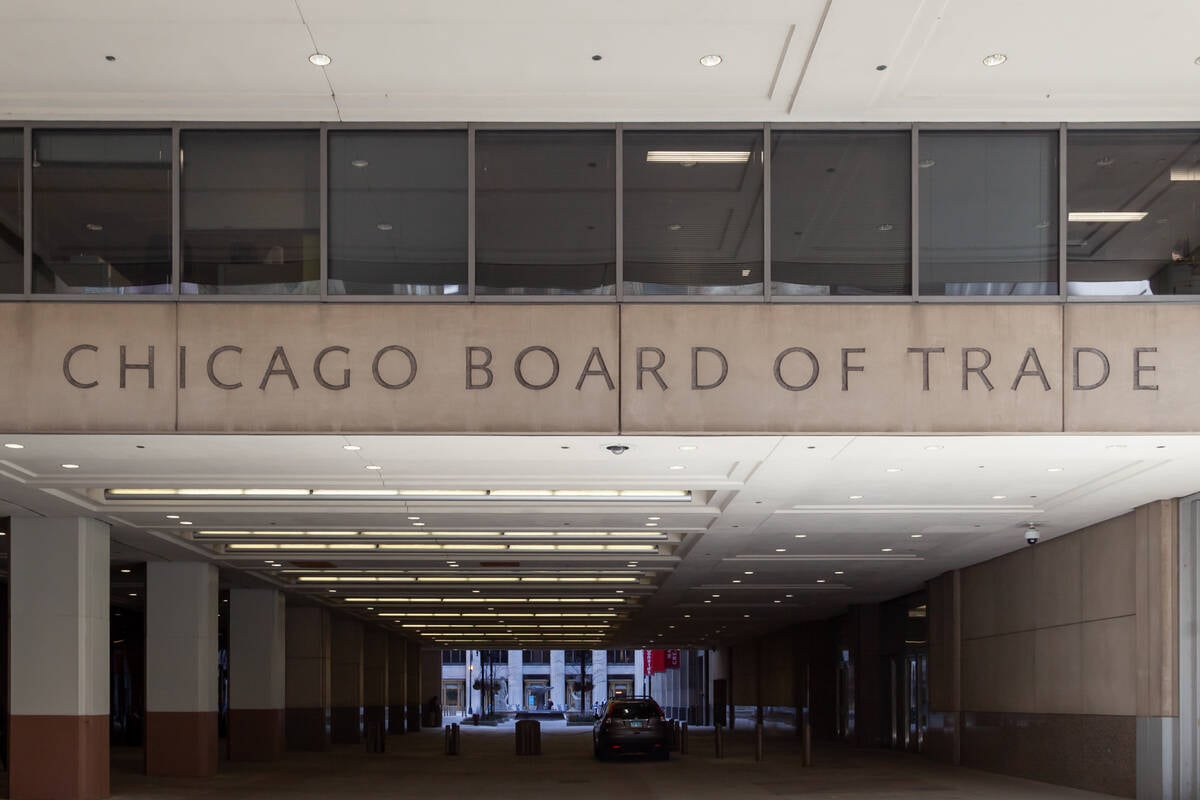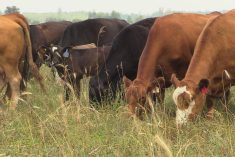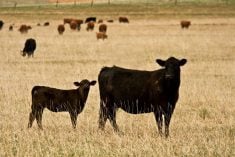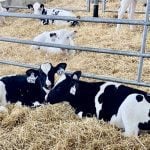Compared to last week, western Canadian feeder cattle markets traded $2-$5 lower on average. Values in Alberta were relatively unchanged but markets in the eastern Prairie regions appeared to trade $4 to as much as $6 below week-ago levels.
Alberta yearlings were relatively unchanged, but noticeable slippage was noted in the non-major feeding regions. Feedlots once again focused on local cattle. Order buyers in Saskatchewan and Manitoba were shopping for demand. Balmy temperatures in southern Alberta caused buyers to back away from the lighter categories in some cases, because this usually translates into respiratory issues. Pens are once again becoming quite soggy in Alberta. Foot soreness has been a major issue throughout the fall and winter. Weather continues to play a major role in market direction. The deferred live cattle and nearby feeder cattle futures were under pressure this past week, setting a negative tone for the cash market. Weakness in the Canadian dollar helped offset the lower live cattle futures.
Read Also

U.S. grains: Soybeans touch 16-month high, wheat firm on Chinese demand hopes
Chicago soybean futures hit 16-month highs on Monday on expectations China will restart large-scale U.S. soy buying after the two countries reached a deal to de-escalate their trade war.
In central Alberta, medium- to larger-frame black steers with medium flesh levels weighing just over 900 lbs. were valued at $183 while Simmental-based steers weighing 870 lbs. were quoted at $185. In Manitoba, exotic steers with medium to heavier flesh levels averaging 870 lbs. were valued at $176; Charolais-blended steers with medium to heavier flesh levels averaging 836 lbs. dropped the gavel at $183. Feed barley prices have been ratcheting higher and with feedlot inventories 20 per cent above year-ago levels, there was no reason for buyers to be aggressive. There is no pen space available.
Prices for calves in central Alberta set the tone for Western Canada. Red- and white-face steers weighing 580 lbs. were quoted at $228 while similar-quality 500-lb. steers reached up to $244. In central Saskatchewan, tan steers weighing just under 600 lbs. were quoted at $228 while black heifers averaging 575 lbs. drew $186. In southern Alberta, pre-conditioned semi-weaned black steers averaging just over 600 lbs. were valued at $222.
Alberta packers were buying fed cattle at $164-$165 fob the feedlot; despite the favourable margin structure, the feeder market is lacking buying interest in the short term. There is a cautious tone because fed cattle prices have potential to drop by $20-$25 from March through June. The U.S. Department of Agriculture is forecasting a sharp year-over-year increase in second quarter beef production.
— Jerry Klassen manages the Canadian office of Swiss-based grain trader GAP SA Grains and Produits Ltd. and is president and founder of Resilient Capital, specializing in proprietary commodity futures trading and market analysis. Jerry consults with feedlots on risk management and writes a weekly cattle market commentary. He can be reached at 204-504-8339 or via his website at ResilCapital.com.

















